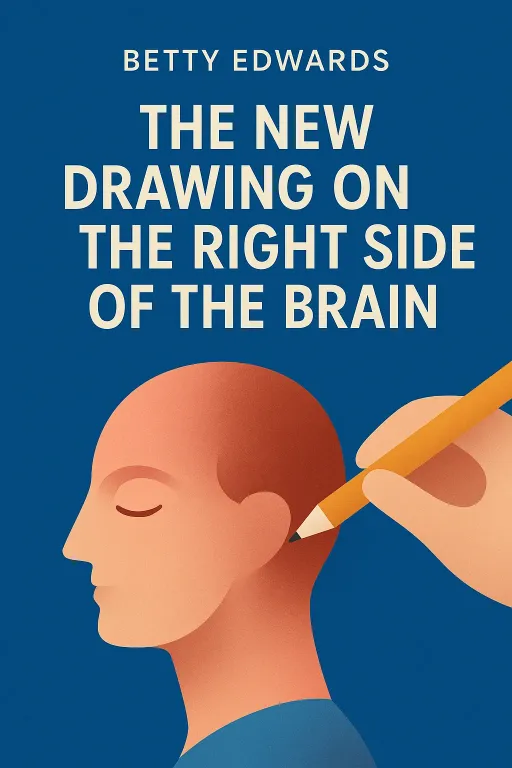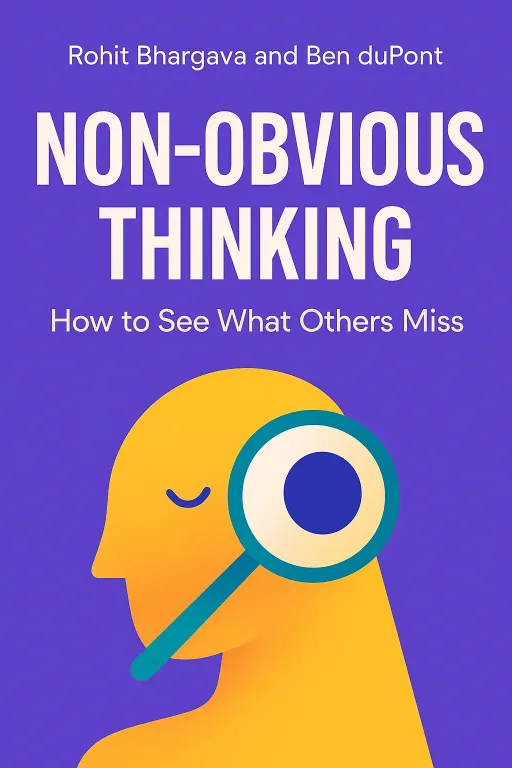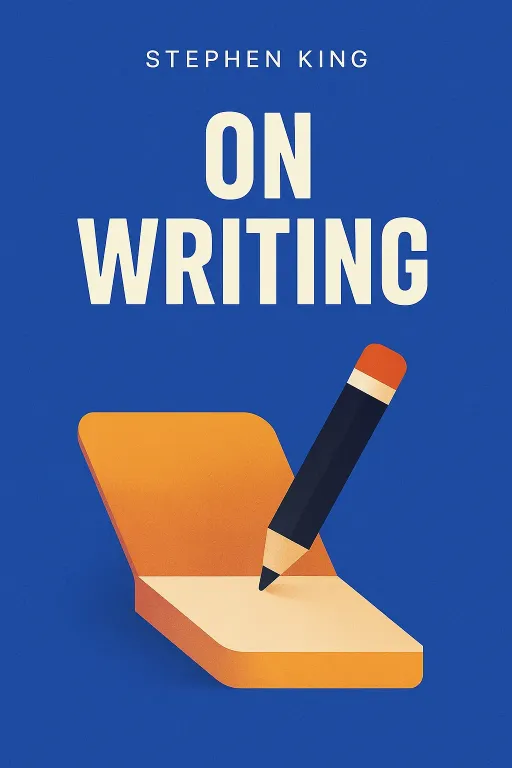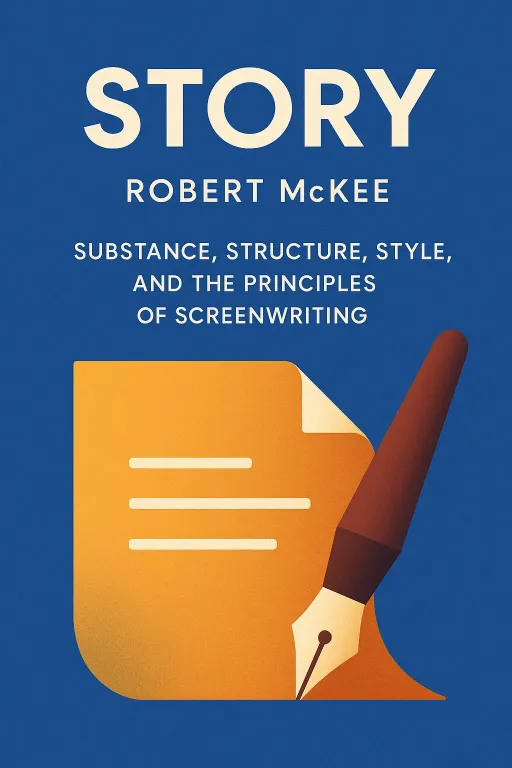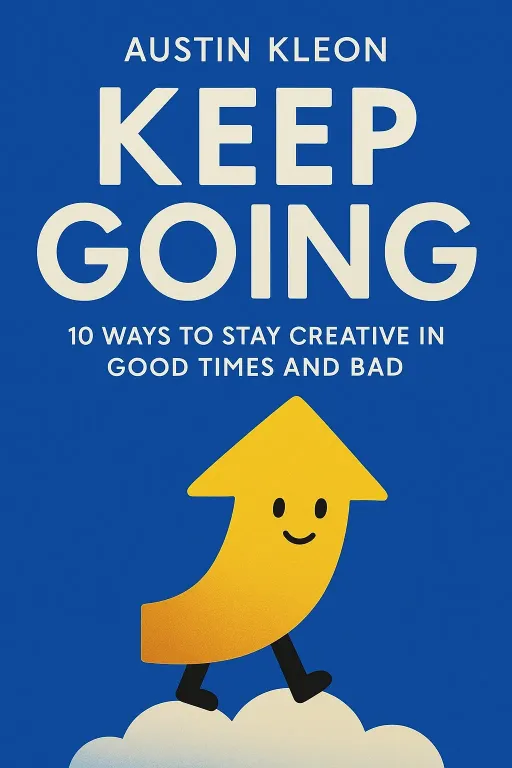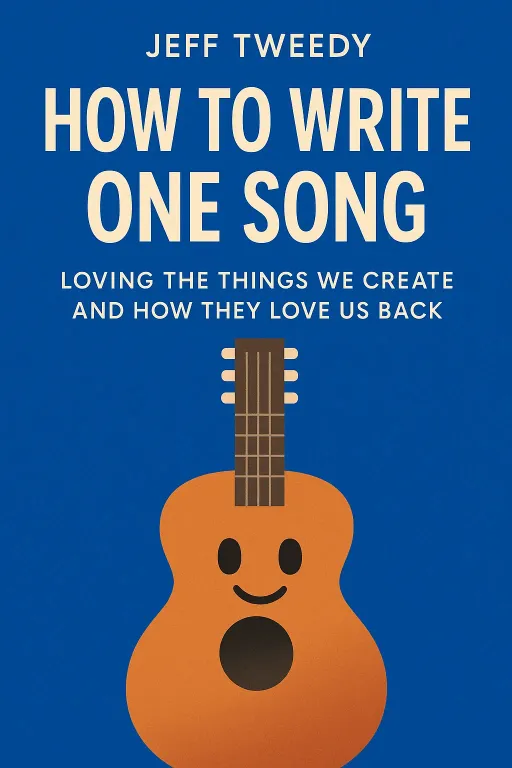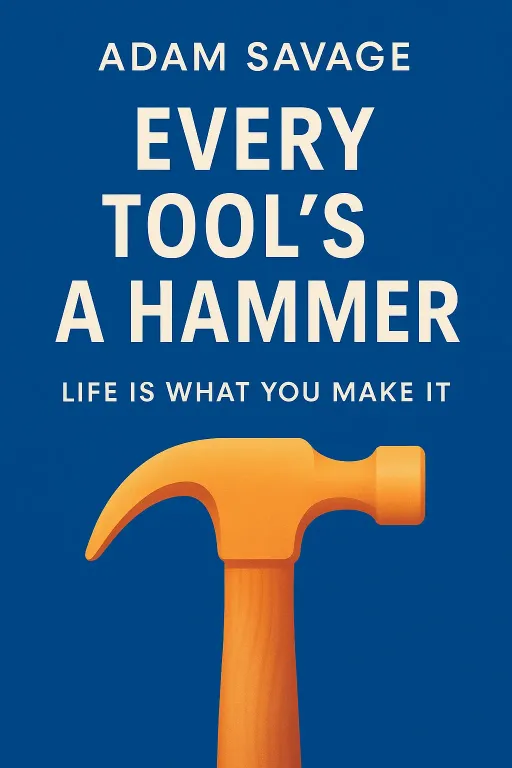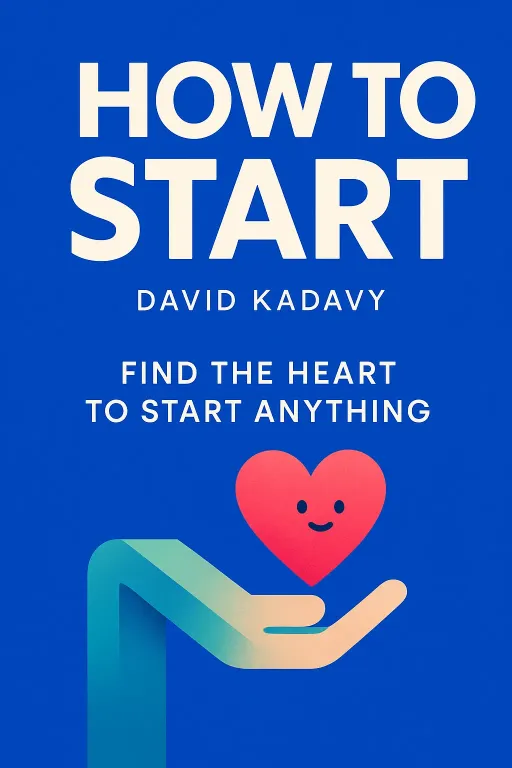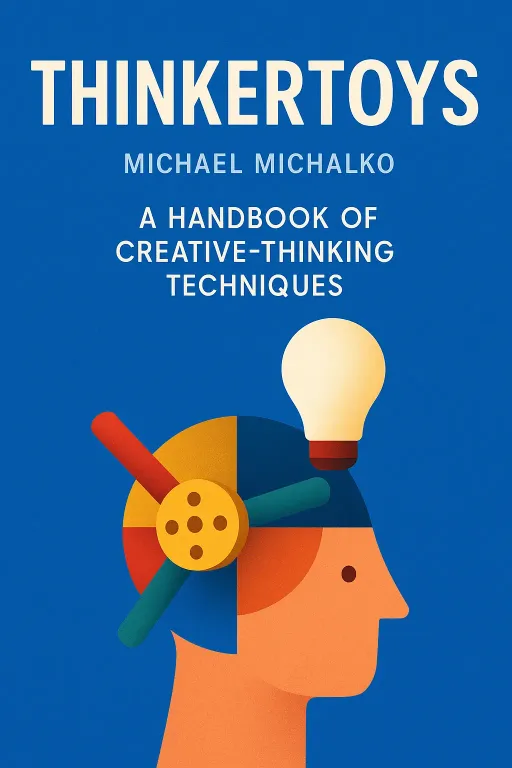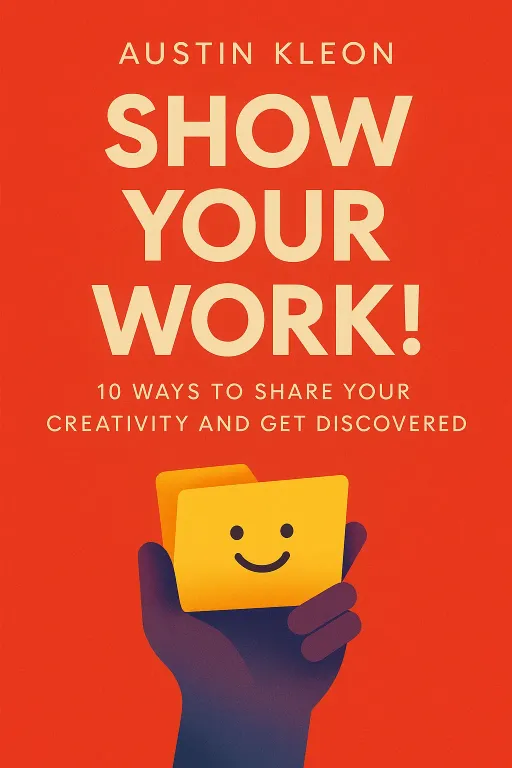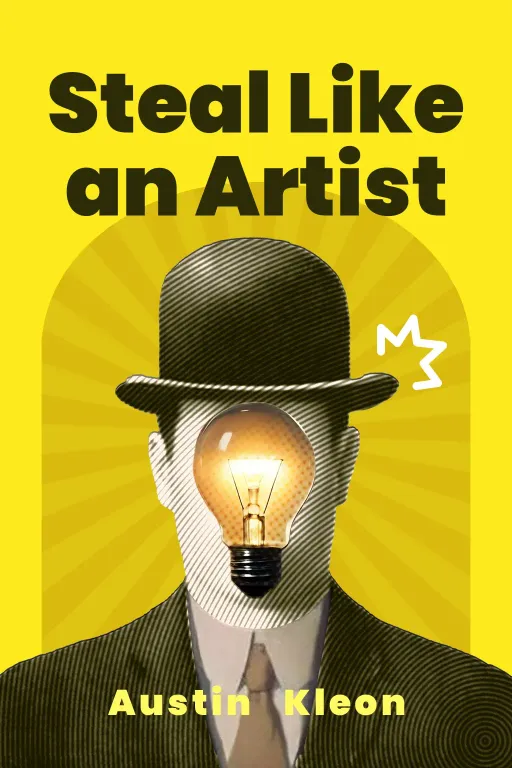
The Shoplifter's Guide to Art
11 min10 Things Nobody Told You About Being Creative
Golden Hook & Introduction
SECTION
Rachel: Alright Justine, I'm going to say a book title, and I want your gut reaction. Steal Like an Artist. Justine: Sounds like a shoplifter's self-help manual. 'Chapter 1: The Five-Finger Discount. Chapter 2: Distracting the Security Guard with Performance Art.' Rachel: I knew you’d go there! And honestly, the author gets that a lot. But we’re actually talking about Austin Kleon's Steal Like an Artist: 10 Things Nobody Told You About Being Creative. Justine: Okay, so it’s not a crime manual. That’s a relief. What’s the story behind it? Rachel: What's great is Kleon isn't some lofty art critic living in an ivory tower. He was a librarian, a web designer for a law school, and an ad copywriter. This whole book, which became a New York Times bestseller, actually started as a simple list of 10 things he wished he'd known when he was starting out. He gave a talk on it, the post went viral, and it became this manifesto for creativity in the digital age. Justine: I love that. It didn't come from a place of "I have all the answers," but "here's what I wish I knew." That feels so much more useful. It’s like getting advice from a friend who’s just a few steps ahead of you on the path. Rachel: Exactly. And that spirit of generosity and demystification is at the heart of his first, and most famous, piece of advice. He kicks the door down with this idea that has been whispered for centuries, often attributed to Picasso: "Art is theft." Justine: Whoa. Okay, that's a bold way to start. It feels both liberating and a little bit dangerous. Like, what does that even mean in practice?
The Permission to Steal: Redefining Originality in the Digital Age
SECTION
Rachel: It means giving yourself permission to stop worrying about being 100% original. Kleon argues that nothing comes from nowhere. Every new idea is just a mashup or a remix of one or more previous ideas. He says we are the sum of our influences. Justine: That makes sense, but the word "steal" is so provocative. It immediately brings up ideas of plagiarism and being a fraud. I think that’s where people get stuck. Rachel: Absolutely, and that's the critical distinction he makes. He quotes T.S. Eliot, who said, "Immature poets imitate; mature poets steal." Imitation is just copying. It's karaoke. You're trying to be a carbon copy of someone else. But stealing, in the artistic sense, is about reverse-engineering. It's about seeing what your heroes saw, understanding why they made the choices they did, and then taking that insight to make something new, something that is uniquely yours. Justine: Okay, so it’s like a chef. You don't just steal another chef's signature dish. You study their technique—how they balance acid, how they use heat, their philosophy of ingredients—and then you use those principles to create a completely new dish. Rachel: That's a perfect analogy. Think about The Beatles. Before they changed the world, they were a cover band in Hamburg, playing for hours every night. They meticulously copied their American rock and roll heroes—Chuck Berry, Little Richard, Elvis. They weren't just playing the songs; they were dissecting them, internalizing the structure, the energy, the soul of that music. Justine: And in failing to be a perfect copy of all those different artists, they became something else entirely. They became The Beatles. Rachel: Precisely! Their own voice emerged from the gaps, from the combination of all those influences filtered through their own personalities. Kleon tells a similar story about the basketball legend Kobe Bryant. Kobe openly admitted he "stole" all his best moves from other great players he watched on tape. But he couldn't just copy them perfectly. Justine: Why not? Rachel: Because his body was different. His reach, his height, his center of gravity—it was all unique to him. So he had to adapt the moves. He had to steal the principle of the move, not just the move itself, and then make it his own. That failure to be a perfect copy is what made him original. Justine: I love that idea. "It is our failure to become our perceived ideal that ultimately defines us and makes us unique." I think that was a Conan O'Brien quote Kleon uses. It reframes failure as the birthplace of identity. Rachel: It completely does. And Kleon’s practical advice here is to become a collector. Not a hoarder, but a curator. Fill your life with things you love and want to steal from. Create what he calls a "swipe file"—a physical or digital folder where you save quotes, images, song lyrics, color palettes, anything that speaks to you. Justine: So you’re building your own private museum of inspiration. And the goal isn't to copy the exhibits, but to understand what makes them great so you can build your own wing of the museum later. Rachel: Exactly. You study the lineage. You find one thinker you love, and you find out who their three favorite thinkers were. Then you study them. You build a family tree of inspiration. You get to pick your ancestors. It’s an active, engaged process. Good theft is an act of honor. Bad theft is just lazy. Justine: That's a powerful reframe. It takes creativity off this impossible pedestal of pure invention and puts it back in our hands as something we can learn, practice, and build upon. It’s not magic; it’s genealogy.
The Creative Paradox: Why Being Boring is Your Secret Weapon
SECTION
Justine: Okay, so I have permission to 'steal.' I'm building my swipe file. But the romantic image of an artist is still so powerful—the chaos, the passion, the dramatic, turbulent life. Kleon seems to argue for the exact opposite, right? He has this whole chapter called 'Be Boring.' Rachel: He does, and it's probably the most counter-intuitive and, I think, the most helpful advice in the entire book for people who actually want to get work done. He quotes the novelist Gustave Flaubert, who said: "Be regular and orderly in your life, so that you may be violent and original in your work." Justine: That sounds like something my accountant would say, not a revolutionary artist. How does being orderly lead to being violent and original? Rachel: It’s a paradox about energy management. Creative work is draining. It takes immense focus and emotional energy. If your daily life is a chaotic mess—you're worried about rent, your schedule is all over the place, you're in constant drama—all your energy goes into just surviving. You have nothing left for the "violence" of your art. Justine: So a boring life is like a stable launchpad for the rocket of your creativity. You need a solid, predictable foundation to be able to take wild risks in your work. Rachel: Exactly. Think of it like a professional athlete. Their daily life is incredibly boring and disciplined: strict diet, rigid training schedule, tons of sleep. They do all that boring stuff so that on game day, they can be explosive, intuitive, and brilliant. Kleon argues artists need the same thing. A routine isn't the enemy of creativity; it's the main support structure. Justine: That is so counter-cultural, especially now. The dominant narrative is "quit your day job, follow your passion, hustle 24/7." But Kleon actually says a day job can be a good thing. Rachel: A very good thing! For three reasons. One, it gives you money, which relieves the pressure on your art to pay the bills immediately. When your art doesn't have to make money, it's free to be weird and experimental. Two, it gives you a routine. It forces you out of bed and into the world. And three, it connects you to other people and teaches you things. Kleon talks about how his library job taught him research, and his copywriting job taught him how to sell with words. Justine: I've definitely found that some of my best ideas come when I'm doing something completely unrelated to my "creative" work. He calls this the importance of side projects and hobbies, right? Rachel: Yes, and he frames it as "productive procrastination." It’s the idea that you should have a lot of projects going at once. When you get bored or stuck on one, you can hop over to another. The "play" project often ends up being the one that takes off because the stakes are low. You're just messing around. That's where the magic happens. Justine: It’s a space for good-natured, pressure-free theft! You’re just playing with ideas. And this connects to his other big point, which is about sharing your work. That feels terrifying for most people. Rachel: It is, but he argues it’s the second half of the equation. Step one: do good work. Step two: share it with people. He says in the digital age, you don't have to be in a geographic hotspot like New York or Paris. You can build your own world online. Share your process, share your influences, share little snippets of what you're working on. Justine: You're not just sharing the final product, you're sharing the journey. You're letting people see the "theft" in action. Rachel: And in doing so, you attract your tribe. People who love the same things you love. They become your collaborators, your critics, your audience. It turns the lonely act of creation into a communal one. You put your work out there, and the internet can be a great incubator. Justine: So the paradox is complete. You live a boring, stable life, you play with side projects, and you share your secrets openly. It sounds less like a tortured artist and more like a happy, productive craftsperson.
Synthesis & Takeaways
SECTION
Rachel: It really is this beautiful, sustainable system. You give yourself permission to draw from everything and everyone around you—the 'stealing'—but you build a disciplined, almost boring, personal structure to actually process those influences and create something new. One part is about opening yourself up to the world, and the other is about creating the quiet space to make sense of it all. Justine: It feels so much more achievable. It’s not about waiting for a lightning bolt of genius. It's about showing up, day after day, and engaging with the world and with your work. So for someone listening who feels stuck, what's one thing they can do tonight based on this? Rachel: I think the most immediate, low-stakes action is to start what Kleon calls a "swipe file." Don't overthink it. Just create a folder on your computer, or get a physical notebook, and find one thing you love. A quote, a photo, a line from a movie, a color combination. Just one. And put it in there. The goal isn't to do anything with it yet. The goal is just to start paying attention and collecting. Justine: I love that. It’s a single, simple step. And it’s an act of curating your own taste, which is the first step to developing your own voice. It’s a tiny act of good theft. Rachel: A tiny, honorable act of theft. Justine: That's a great place to end. And we'd love to hear what you all are 'stealing' inspiration from. What's the one thing you'd put in your swipe file today? Share it with us on our socials; we genuinely want to see what fuels your creativity. Rachel: This is Aibrary, signing off.
